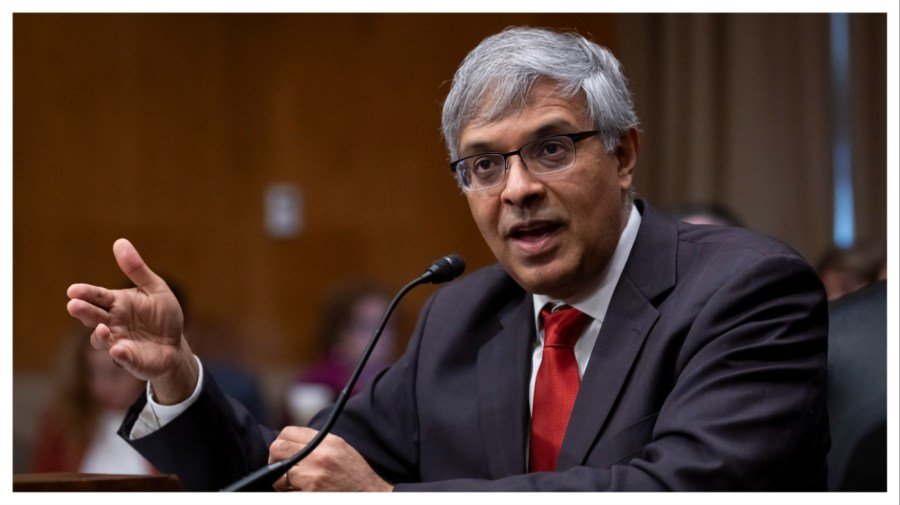Bhattacharya will have to defend the $18 billion in cuts to the agency that the Trump administration has requested. This would mean a 40 percent reduction in NIH’s budget next year.
He’ll also likely be questioned during the Senate Appropriations subcommittee hearing about NIH’s current budget, as the administration has terminated billions of dollars in grants.
The hearing comes one day after 90 agency scientists signed a rare letter of protest, modeled after Bhattacharya’s “Great Barrington Declaration” that objected to the Biden administration’s COVID-19 policies.
Titled “The Bethesda Declaration” in reference to where NIH’s campus is located, the letter lambasted several of the major changes carried out at NIH under the orders of the Trump administration:
- The researchers called on Bhattacharya to restore foreign collaborations with the global scientific community, stating that critical research has been compromised and U.S. scientists have been cut off from technologies only available abroad.
- They also demanded that NIH restore independent peer review of research at the risk of losing “scientific integrity and public trust.” The letter accused current NIH leadership of “ignoring peer review to cater to political whims.”
- The 15 percent cap on indirect costs is “arbitrary” and hinders research, according to NIH staffers. They urged Bhattacharya to continue indirect costs rates that reflect “research costs borne by academic institutions.” A federal judge ruled in April to permanently block the cap, though NIH is appealing this decision.
-
In their final point of issue, NIH staffers called for their laid off colleagues to be given their jobs back, writing the reduction in force has “slowed the pace of science, held up extramural grant and contract funding, made NIH less transparent and efficient, and put Clinical Center patients at risk.”
“Academic freedom should not be applied selectively based on political ideology. To achieve political aims, NIH has targeted multiple universities with indiscriminate grant terminations, payment freezes for ongoing research, and blanket holds on awards regardless of the quality, progress, or impact of the science,” the letter read.
Bhattacharya responded to the letter on social media, arguing the letter had “some fundamental misconceptions” about NIH’s recent actions and further claiming the changes they’re protesting are not as severe as they make it seem.
